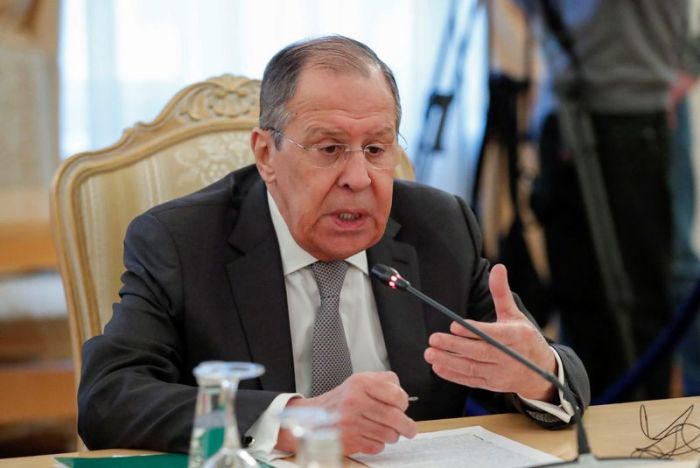NEW YORK (Reuters) -Oil prices fell about 2% on Thursday as talks to resurrect a nuclear deal with Iran entered their final stages which could unlock more crude supplies, but losses were limited by tension between top energy exporter Russia and the West over Ukraine.
“(The) oil market is locked in a tug of war between Iranian sanctions relief and Russian-Ukraine tensions,” said Stephen Brennock at brokerage PVM Oil.
Brent futures fell $1.91, or 2.0%, to $92.90 a barrel by 1:34 p.m. EST (1834 GMT), while U.S. West Texas Intermediate (WTI) crude fell $1.97, or 2.1%, to $91.69.
Both benchmarks rose to their highest levels since September 2014 earlier in the week and both continue to face extreme backwardation in coming months, a market structure where prompt contracts are more expensive than those for later dates, indicating supply tightness.
Futures for Brent and WTI through August were in what Robert Yawger, executive director of energy futures at Mizuho, has called “super-backwardation” with each month trading at least $1 a barrel below the prior month.
“The price could already be in triple-figure territory if not for the nuclear talks between the U.S. and Iran,” said Craig Erlam, market analyst at OANDA, noting “it could mean around 1.3 million barrels per day (bpd) of crude quickly re-entering the market.”
The United States is in “the midst of the very final stages” of indirect talks with Iran, aimed at salvaging a 2015 deal limiting Tehran’s nuclear activities, State Department spokesperson Ned Price said on Wednesday.
With a new deal possibly on the horizon, South Korea said on Wednesday it had held talks on resuming imports of Iranian crude oil and unfreezing Iranian funds. South Korea was previously one of Tehran’s leading oil buyers in Asia.
However, tension over a possible Russian invasion of Ukraine continued to support oil markets because of the potential disruption to energy supplies. Russia denies planning to invade its neighbour.
U.S. President Joe Biden said on Thursday there was every indication Russia planned to invade Ukraine in the next few days and was preparing a pretext to justify it, after Ukrainian forces and pro-Moscow rebels traded fire in eastern Ukraine.
(Additional reporting by Ahmad Ghaddar in London and Chen Aizhu in Singapore; Editing by Marguerita Choy, Mark Potter and Barbara Lewis)



















